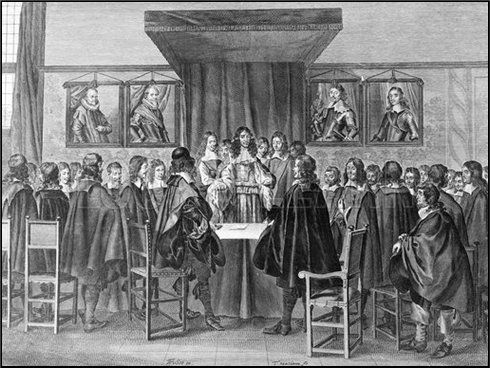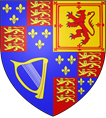


xxxxxAs we have seen, with the breakdown of government in England following the departure of Richard Cromwell in 1659, a section of the army (led by General George Monck) marched to London and organised the return of the monarchy in the person of Charles II -
THE DECLARATION OF BREDA 1660 (CW)
Acknowledgement
Breda: by the Dutch engraver Theodor Matham (c1606-
xxxxxWith the departure of Richard Cromwell in 1659 -

xxxxxIn fact, the majority of the people in the country now favoured the return of the monarchy in the interests of stability and continuity. In their experience, any way, it was the only legitimate form of government. And there were many, too, who found life oppressive under the strict social reforms introduced by their puritan masters, and hoped for a return to the "good old days" (though they had not always been so good!). Before returning to England, however, the exiled Charles II, on the advice of both his advisor Edward Hyde and General Monck, issued the Declaration of Breda in 1660 (illustrated). This set out the terms for his acceptance of the throne but was, in effect, a statement promising a number of measures, including a general amnesty, a fair settlement of all land disputes, the payment of arrears to the army and, in the matter of religion, freedom of conscience. And the details of these terms were to be left, be it noted, to a "free parliament".
 xxxxxCharles Stuart was proclaimed king on the 8th May 1660. He received a warm welcome when he landed at Dover on the 25th and entered London amid widespread rejoicing on the 29th, his 30th birthday. As we shall see (C2), his reign was to be one of mixed blessings and broken promises.
xxxxxCharles Stuart was proclaimed king on the 8th May 1660. He received a warm welcome when he landed at Dover on the 25th and entered London amid widespread rejoicing on the 29th, his 30th birthday. As we shall see (C2), his reign was to be one of mixed blessings and broken promises.
CW-


